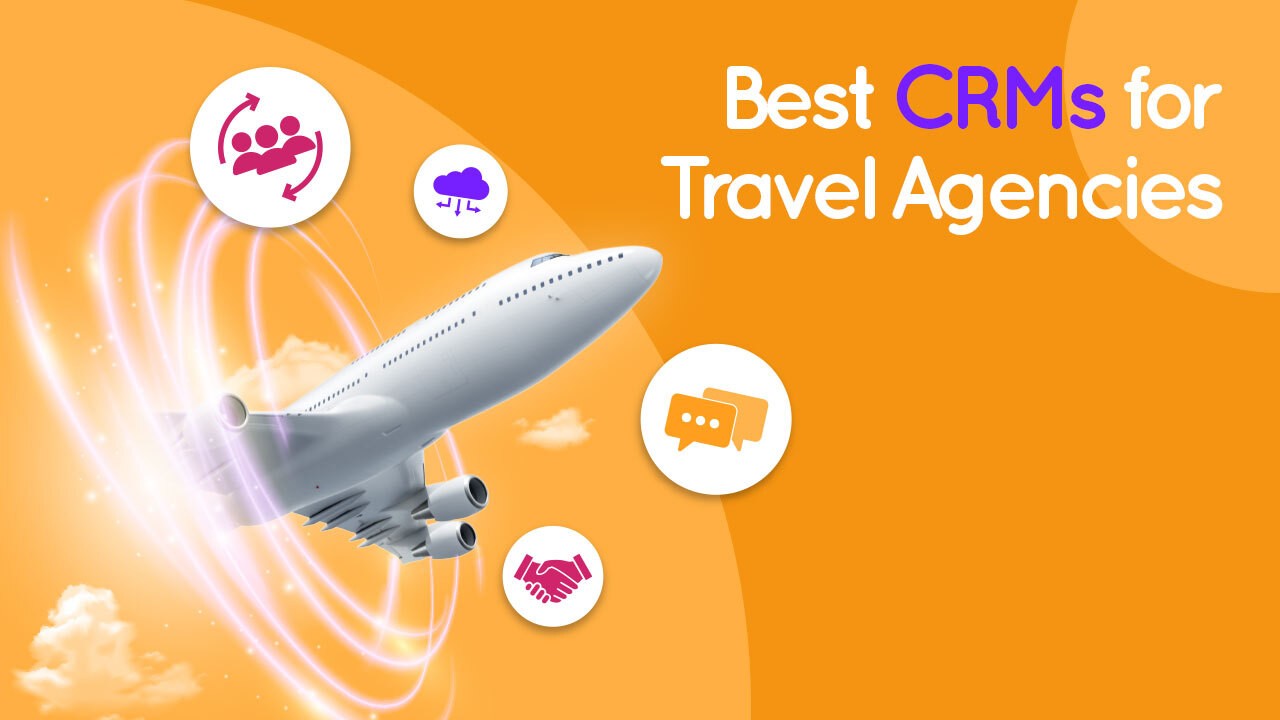
Travel's Future: Innovations in CRM and Marketing
The speed at which travel is evolving is unprecedented in history. One area that is becoming more important than ever as a result of technology revolutionizing the way we book flights and find new places to visit is customer relationship management (CRM) and marketing innovations. As traveler expectations change, businesses in the travel sector must adapt to provide experiences that are increasingly personalized, efficient, and innovative. We shall discuss the travel of the future by looking into how CRM systems and marketing strategies have been transforming the industry.
What is CRM, and why does it matter in travel?
It can be defined as the strategies, technologies, and tools which organizations use to analyze customer interactions and data all over the customer lifecycle. Customer Relationship Management in travel enables businesses to strengthen relationships between themselves and travelers through the proper understanding of traveler preferences, behavior, and needs. Whether it’s a hotel, airline, or travel agency, using CRM effectively can enhance customer satisfaction, loyalty, and ultimately drive more bookings.
Historically, CRM was simply the safe place to store all of one's customer contact information. Today, however, this is a robust technology, integrating data from several places, allowing travel companies to target marketing campaigns in very sharp ways, deliver offers which are personalized, and then provide excellent customer service, thereby creating a much more personalized experience and enabling loyalty among customers, which forms lasting relationships with their clients.
Marketing innovation plays a key role in the travel industry of the future.
Marketing forms a vital part of the travel industry. Competition is quite high, and there are very many for travelers. This way, travel businesses make innovative marketing to attract and reach their customers. Innovations are influenced by technology advancement, insight into the customer, and analysis of data.
The following are some of the main innovations that shape the travel industry:
1. Personalization through Data Analytics
The biggest trend in the travel industry today is personalized marketing. Travelers have graduated out of generic offers. For instance, they want experiences tailored to their specific and individual interests, preferences, as well as past behaviors. Companies, through the help of data analytics, can now offer customized offers for each customer on the market.
CRM systems serve to pool together and analyze a great deal of customer data. Such data includes booking data, social media, emails, and other information. This gives companies the capability to differentiate customers and provide customized offers to them, like special discounts on a hotel stay or holiday packages designed around where a customer has traveled.
An example can be an airline emailing a frequently visiting passenger to a city a personalized special offer. A hotel might tailor-make a package for the guest, offering upgrades or even amenities that are of previous interest. Personalization tends to bring about loyalty and the guests' feelings of importance that make them likely to repeat the business.
2. Artificial Intelligence and Chatbots
By undergoing tremendous changes in some of the ways they relate with their customers, travel agencies are indeed benefiting from the AI revolution. This has seen the travel industries embrace AI-based chatbots that act as support teams to answer simple questions almost instantly 24 hours a day and make reservations for clients by recommending where to go, what to stay in, and what you can do.
Ability to predict customers' preferences and proactive suggestion facility is also there. For Example, if a customer is a traveler who has already traveled through beach destinations, then this AI tool can provide new beach locations or activities of person’s interest. It can trace real-time data such as a flight delay or a weather change and keep the customer updated about his traveling plan.
In the near future, the travel industry would have the chance to witness the AI dimension in avail of faster, smarter, and more efficient means of interaction. The business world could see it as the capability of serving highly personalized experiences, with less dependence on humans for repetitive tasks.
3. Voice Search and Smart Assistants
The next big thing in the travel arena will be voice search with smart assistants such as Amazon Alexa, Google Assistant, and Apple Siri. In due course, people are turning on their voice commands while asking for flights, hotel bookings, and information related to destinations. Travel companies now must adjust their website and service-oriented marketing strategy in accordance with optimizing it for voice search.
With voice search, customers can communicate and interact with businesses much more conversationally and naturally. A traveler can ask his or her voice assistant, "Find me a flight to Paris next week," and immediately get options according to his or her preference. Therefore, travel companies will always remain visible and more accessible to potential customers that have a soft spot for hands-free technology if only content is optimized for voice search.
Publishers can offer virtual reality tours of their hotels; detailed 360-degree views of rooms, grounds, local sites, etc. A travel planner could offer augmented reality overlays with additional info about tourist areas, restaurants, or landmarks while the travelers are exploring a city.
This technology makes for a more engaging and interactive means of allowing businesses to display their products to customers. It also forms trust with potential customers because they get an honest preview of their trip before committing a booking.
4. Social Media and Influencer Marketing
Social media continues to be the biggest power for travel companies. It is on social media that people find their inspiration, recommendations, or to share their experiences; hence, the importance of influencer marketing in connecting travel brands with a broader audience.
At present, influencers, particularly those with high followings in the tourism sphere, have acquired reputations as reliable information providers. Tourism companies are very much interested in collaborating with such personalities, as they project the very idea of their offering in an authentic manner and closer to the potential customer. An invitation extended to an influencer to stay in a hotel and share her experience, or any travel brand sponsoring content showcasing a particular destination-is something done through influencer marketing.
5. Sustainable and Eco-Friendly Traveling
With greater sustainable needs in the world of travel, eco-friendly travel choices have surged in popularity. These industries for tourism embrace sustainability, all the while promoting CRM capabilities towards green practices. This can mean offering eco-friendly lodging, carbon offset programs, and responsible tourism support for local communities.
Companies operating travel businesses are also employing marketing campaigns that emphasize their environmental activities. The more environmentally conscious traveler has become a reality, and the provision of information about eco-friendly practices has emerged as a valuable sales point.
Conclusion
This future is excitingly bright for the future of CRM and marketing in travel. Technologies will become more advanced to offer personal, seamless, and engaging travel experiences. Therefore, keeping ahead of the trend, investing in the proper technologies, and embracing innovations to cater to the continually shifting needs of today's travelers are crucial.
Travel industry businesses must learn how to have better, meaningful relationships with customers. So companies must use the very best of the tools across general CRM and move towards data-driven decision-making along with accepting newer marketing technologies. It is through these channels that companies will continue to grow and prosper putting the customer at the center of everything they do and adding even greater value, convenience, and personal experiences that weren't conceivable up until now.
In a world where travel is now on a constant, instead of a cyclic, movement, so is the trajectory along which companies will connect with the traveling public. In all of that, however, one is clear: CRM, as well as marketing innovation, will play a very prominent role in the future of travel.
Read Also
Visual Storytelling: Graphic Design in Travel Marketing

 Start your Travel Business with Our 7 Day Free Trial Website!
Start your Travel Business with Our 7 Day Free Trial Website!





